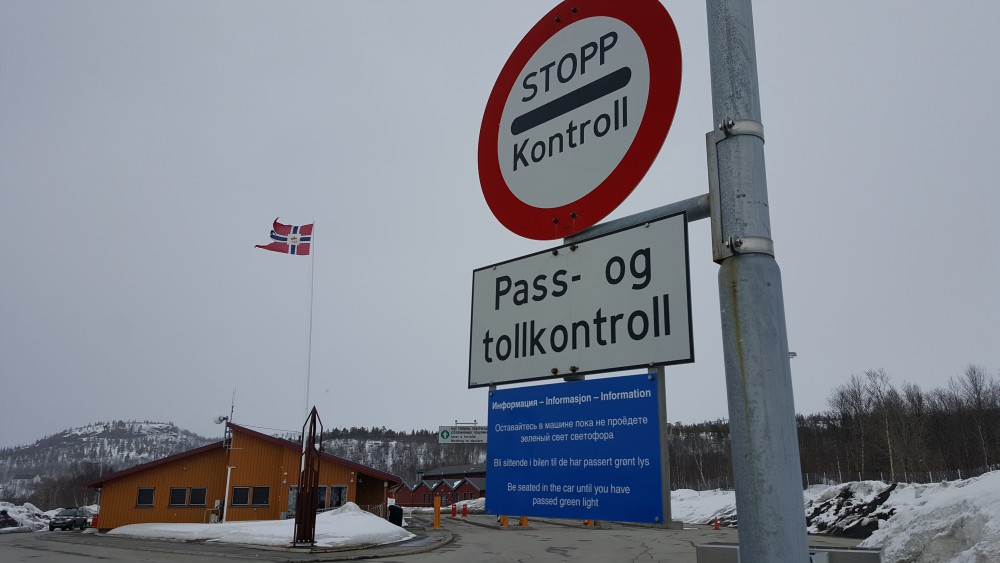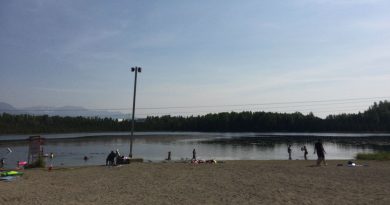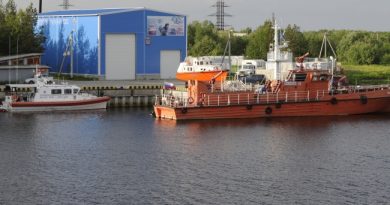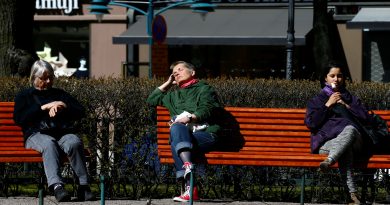Food authorities suspend seafood import from Russia at Storskog checkpoint

The physical facilities at Storskog border checkpoint do not meet the Norwegian standards required for carrying out control. From Friday, Russia’s most important land gateway for export of cod and haddock to Europe is closed.
Storskog is an important entry gate for Russian fish to the European market. So far in 2023, more than two million kilos with frozen cod and haddock are sent in transit from Murmansk to countries in continental Europe via Storskog, the northernmost cross-border road between Russia and Schengen-Europe.
From October 13, however, the Norwegian Food Safety Authority suspends all import of packed fish products, with and without temperature requirements (cooled, frozen), a statement reads.
“The checkpoint does not have the physical facilities required to conduct controls in accordance with the law and regulations,” says head of department with the Food Safety Authority, Cecilie Hansen, to the Barents Observer.
She makes clear that when Veterinarians can’t work, no import can take place.
“It is a temporary suspension until the requirements in accordance with the regulations again are met,” Cecilie Hansen says.
The Barents Observer has previously reported about the old facilities at the border checkpoint. “High time for new buildings,” said Chief of Police in Finnmark in 2017.
Storskog facilities long been up for discussion
Norwegian authorities have since 2012 studied different alternatives for a new modern checkpoint to replace the current one that was built in the early 1990s.
On the Russian side of the border, at Borisoglebsk, a brand new building with attached control facilities was built in the period 2000-2002. Paid for by Norway.
Cecilie Hansen states that the facilities at Storskog have long been up for discussion.
The checkpoint includes police immigration control, Customs control and veterinarian control.
“We have to see if it is possible to upgrade the facilities to needed standards,” Hansen explains.
Hopes Storskog control stations put on agenda
The Food Safety Authority’s presence is important to ensure safe import of goods and services, for people, nature and animals,” she adds.
Hansen hopes that a process will be started to ensure that the facilities at Storskog control stations are put on the agenda so that services and assignments can be carried out in accordance with legislation and requirements.
Although the land border will be temporarily closed for seafood, Russian trawlers are allowed to deliver fish to the three north Norwegian ports of Tromsø, Båtsfjord and Kirkenes.
In 2022, Russian vessels landed fish worth €175 million in Norwegian ports, up 42% from the previous year.
Cod and haddock are not on the European Union’s sanctions on Russia following the 2014 war in eastern Ukraine, illegal annexation of Crime and all-out war from February last year.
Russian authorities imposed a ban on import of Norwegian seafood in 2014 as part of the counter-sanctions after the annexation of Crimea. Until then, Russia had been Norway’s biggest export market for salmon, trout and herring.
In July 2023, the Russian Agriculture Ministry introduced restrictions on imports of ready-made fish and seafood from so-called “unfriendly” states, that include most of Europe.
Related stories from around the North:
Canada: Police in Northwestern Canada’s border territory can now ticket people who violate travel restrictions, CBC News
Finland: Finnair starts cross-border winter flights between destinations above Arctic Circle, The independant Barents Observer
Norway: Border trouble not on agenda when FSB boss visited Norway, The Independant Barents Observer
Russia: Nearly 1m cross Finland-Russia border this year despite restrictions, Yle News
Sweden: Key NATO commanders teamed up with newcomer Sweden at northern border with Russia, The independant Barents Observer
United States: Alaska’s fisheries face climate change, costs; fewer youth join trade, The Associated Press



